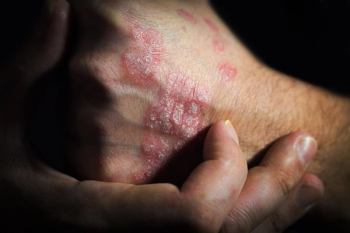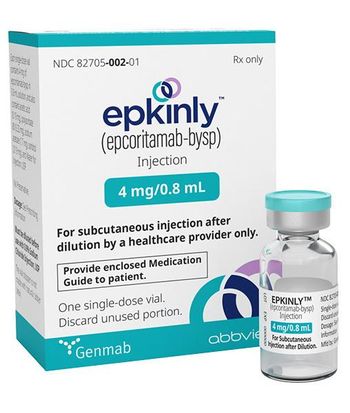
Patients With HS Should Be Screened for CKD
A possible association between hidradenitis suppurativa (HS) with chronic kidney disease (CKD) suggests that patients with HS who present signs of CKD should be assessed by a nephrologist, suggests a study.
There is a possible link of
HS is associated with multiple comorbidities like diabetes mellitus and cardiovascular diseases, and these comorbidities are additional risk factors for CKD, but not much is known about the risk of CKD in patients with HS.
In this study, researchers aimed to evaluate the prevalence of CKD in patients with HS.
HS is a systemic inflammatory disease with serious comorbidity burden like inflammatory bowel disease, inflammatory arthritis, diabetes, and all-cause mortality. It is also linked to increased levels of inflammatory cytokines that are associated with CKD. Comorbidities associated with HS like diabetes and hypertension are known risk factors for CKD.
First, researchers identified 23,767 hospital admissions for patients with HS and 95,068 admissions for age and gender matched controls. This was a cross-sectional population-based study using the United States National Inpatient Sample database, between January 1, 2002, and December 31, 2012.
The prevalence of CKD in patients with HS was 6.3% compared to controls without HS 4.3%. The association of CKD was strongest in patients with HS who were the age of 60 years or older (16.9%), male (7.3%), obese (7.8%), have diabetes (12.5%), hyperlipidemic (13.3%), and had cardiovascular diseases (12.5%). The crude odds ratio of CKD in patients with HS was 1.5 (95% CI, 1.420-1.605) compared to patients without HS. The association maintained significance after adjusting for important covariates with adjusted odds ratio of CKD in patients with HS of 1.1 (95% CI, 1.014-1.176) compared to patients without HS.
There were several hypotheses put forward by the researchers to provide reasoning behind the prevalence of CKD in patients with HS, with a significant association between HS and CKD (adjusted OR, 1.1).
First, most comorbidities associated with HS like diabetes, hypertension, and obesity, are known CKD risk factors. Secondly, cells involved in the pathogenesis of HS, type 1 and type 17 helper T lymphocytes (Th17) are cells involved in the pathogenesis of HS, and Th17 lymphocytes can impact tubular and mesangial kidney cells.
In 1 study by Kimball et al., several severity indicators were used to stratify patients with HS into mild or severe. Patients with HS who has 1 of the indicators were classified of severe, it was reported that a higher percentage of kidney disease in severe HS (3.1%) than mild HS (1.5%). Kidney diseases were more prevalent in severe HS (3.1%) than non-HS controls (0.5%).
Researchers said that it is important for clinicians who treat patients with HS to know about a possible association between renal function and HS, suggesting that renal function tests should be ordered to screen for renal diseases in patients with HS. This is important because it might help patients avoid factors that can cause more kidney damage. It was also noted that chronic use of non-steroidal anti-inflammatory drugs to control pain could have a nephrotoxic effect, and for these patients, alternative treatment modalities with less potential for nephrotoxicity should be considered.
“We recommend screening for renal disease with urinalysis for proteinuria and hematuria, serum creatinine, [glomerular filtration rate], and blood urea nitrogen in patients with HS. Any abnormal investigation should be assessed by a nephrologist,” emphasized the researchers.
This study has some limitations. The temporal relationship between HS and CKD could not be clarified since it’s a cross-sectional study. Researchers adjusted for major risk factors for CKD, but the database lacked information on other CKD risk factors, like medication and herbal supplement usage.
“Early diagnosis and early intervention can prevent further progression and complications in this high-risk group,” concluded the researchers.
Reference
Almuhanna N, Tobe SW, Alhusayen R. Risk of chronic kidney disease in hospitalized patients with hidradenitis suppurativa. Dermatology. Published online July 24, 2023. doi:10.1159/000531960
Newsletter
Stay ahead of policy, cost, and value—subscribe to AJMC for expert insights at the intersection of clinical care and health economics.
















